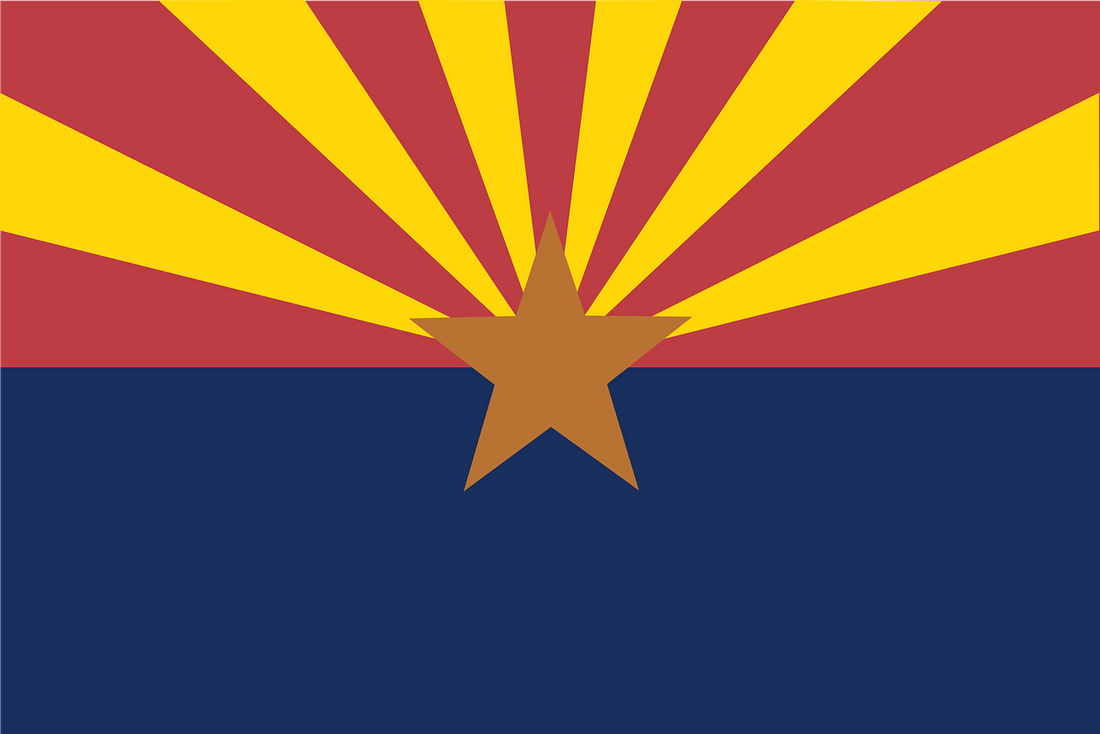Arizona comes up frequently in articles and conversations about kratom legality. And there’s a good reason for it. The Grand Canyon State has some of the nation’s most unique kratom laws, and it has become a model for other states looking to provide common-sense regulations. So is kratom legal in Arizona? And what specific laws are in place? Here are 10 things you need to know.
1. Kratom Is Legal in Arizona
To answer the central question, yes, kratom is legal in Arizona. You can comfortably stock up on your favorite Maeng Da Kratom powder and Gold Kratom Capsules anywhere in the state, from Kingman to Tombstone, and from Scottsdale to Bisbee. As long as your kratom meets the regulatory requirements, you have nothing to worry about.
2. Arizona Once Tried to Ban Kratom (Unsuccessfully)
In 2014, Arizona lawmakers introduced a bill that would have rendered kratom illegal statewide. The bill (House Bill 2453) contained a list of substances to be added to the state's controlled substances list. Included among the list of substances were kratom’s primary alkaloids, mitragynine and 7-hydroxymitragynine. Proponents of the bill sought to classify both alkaloids as Schedule I Controlled Substances in the states. However, the alkaloids were ultimately removed from the bill’s language, and kratom remains legal in Arizona today.
3. Arizona Has Strict Kratom Regulations in Place
Arizona was one of the first states to introduce a version of the Kratom Consumer Protection Act (KCPA), a list of safety regulations to which kratom manufacturers are accountable. In 2019, House Bill 2550 was signed into law by Gov. Doug Ducey, following in the footsteps of other kratom-regulated states like Utah.
4. Vendors Are Prohibited From Selling Kratom to Minors
As one stipulation of the Arizona KCPA, it’s illegal for manufacturers, distributors, and vendors to sell kratom products to anyone under 18 years of age. The governor has stated that keeping kratom out of the hands of minors was his primary motivation for signing the KCPA, although the law does much more than that.
5. Kratom in Arizona Has Strict Labeling Requirements
Another primary objective of the Arizona KCPA pertains to kratom labeling. Under the terms of the law, kratom manufacturers must adhere to strict labeling requirements. Specifically, the label must disclose that the product contains kratom. It must also disclose the ingredients and the alkaloid concentrations. The latter requirement essentially means that kratom manufacturers must subject each batch to laboratory testing, which is becoming increasingly important in the unregulated kratom market.
6. Synthetic Alkaloids Are Off Limits
Kratom products sold in Arizona may not contain synthetic alkaloids or other synthetically derived ingredients. This is more good news, as synthetic kratom products have become a big problem in the kratom market. Such products are dangerous and unpredictable, and that’s why it’s crucial to stick with all-natural kratom products made with pure Mitragyna speciosa (kratom leaf).

7. Contaminated Products Are Also Illegal to Sell
The Arizona Kratom Consumer Protection Act prohibits the sale of products contaminated with a dangerous nonkratom substance. Dangerous non-kratom substances may include synthetic ingredients, controlled substances, and also everyday contaminants like mold and bacteria. Contaminated kratom has been a persistent problem in non-regulated states, as vendors have no obligation to test their products for contaminants. You can rest easier knowing that kratom in Arizona is subject to the high quality control standards.
8. Alkaloid Concentrations Are Also Regulated
Like many states that depend on the Kratom Consumer Protection Act, Arizona imposes maximum alkaloid concentrations. Specifically, the 7-hydroxymitragynine (7-OH) concentration cannot exceed 2% of the total alkaloid concentration in any product. It’s worth noting, though, that most natural kratom products—even concentrated kratom extracts—contain 7-OH concentrations well below 1%, so this is rarely an issue.
9. You Should Always Research Local Kratom Laws When Traveling Outside AZ
Though kratom is legal in Arizona, the same cannot be said of every location in and outside the U.S. Currently, kratom is illegal in six states: Indiana, Wisconsin, Rhode Island, Alabama, Arkansas, and Vermont. Kratom is also prohibited in a few cities and counties nationwide, including nearby San Diego and Oceanside, California. If you’re driving across the border to Mexico, kratom is legal but should be kept in its original packaging in case you’re questioned by border agents.
10. The Best Kratom in Arizona Is Found Online
If you’re shopping for kratom in Arizona, you can easily find it in convenience stores. However, the best products and selection are always found online. At Royal Kratom, we offer the ultimate selection of premium lab-tested kratom, including unique specialty products you won’t find anywhere else—like our invigorating Rainbow Kratom Blend Powder. We offer free same-day shipping on all orders, plus our 30-day satisfaction guarantee.
Is Kratom Legal in Arizona? A Recap
Just to sum it all up, here are a few things you need to know about kratom in Arizona:
- Kratom is legal in Arizona—as long as you’re over 18 years old.
- Kratom in Arizona is regulated under the Kratom Consumer Protection Act; manufacturers cannot sell products that are synthetic, adulterated, contaminated, or otherwise unnatural.
- Every state and region has its own kratom laws, so be sure to research them carefully when traveling outside Arizona.
- Arizona has strict kratom labeling requirements, so you can always refer to the product label for details like ingredients and alkaloid concentrations.
- Royal Kratom is the best place to find premium kratom in Arizona; your satisfaction is guaranteed, and our all-natural products are simply the best.
Enjoy your kratom!

